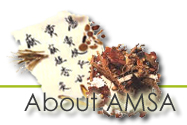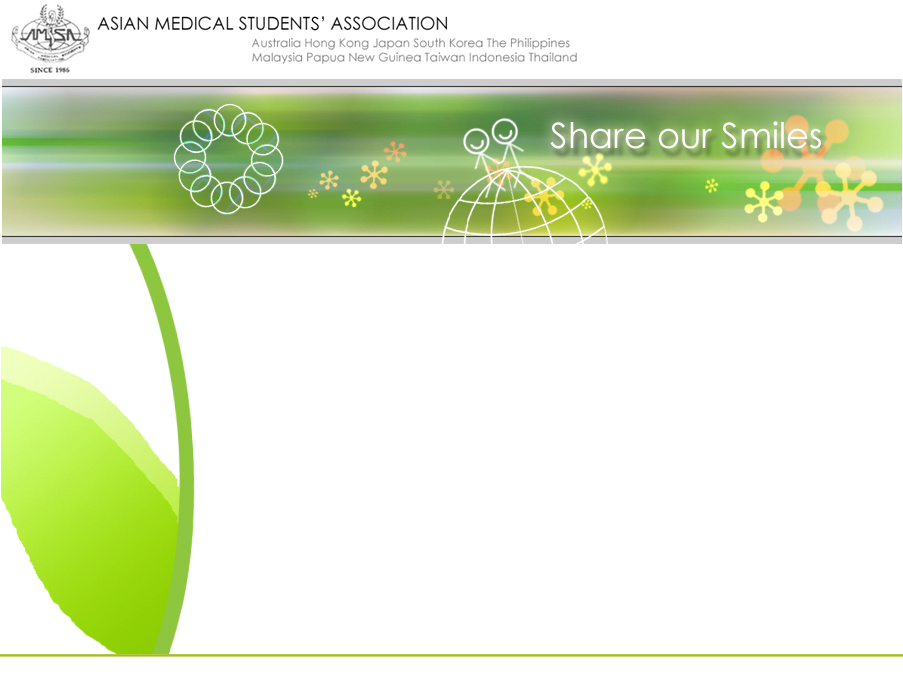|
|
|
Copyright © 2004 MoggleC All rights Reserved. l
Contact Webmaster l l
site map l
![]()
![]()
|
Development of Medicine in Thailand By Chenchai Sangsirinakagul, Sukree Samanthai and Chanut ongprasertsuk. Adapted from the thesis "Thai Tranditional Medicine System and Practice" by Miss Sumruay Subcharoen. Historical Review of Thai Tranditional Medicine Thai tranditional medicine is an ancient art of healing indigenously found in the land of Siam (former name of Thailand). There are some evidences that Thai tranditional medicine did exist for more than thousand years as we can see from stone inscriptions and palm-leaf books. Thai tranditional medicine is believed to be basically originated from Buddhist philosophy and local wisdom which was developed continuously since 600 BC. There were rise and fall periods of Thai tranditional medicine which were related to war and peace of the land, especially in the period of Sukhothai and Ayutthaya. During the war, some tranditional pracititioners were killed or captured, the city was distroyed, the stone palaces and, of cause, stone inscriptions were ruined. Since the method of learning Thai tranditional knowledge was mainly handed down orally from teachers to their pupils, only few parts were recorded in palm-leaf books. There are several times that the kings in each period tried to collect the knowledge into system but the attemps were not successful until Rattanakosin period (the present period). In the reign of King Rama the Second, the first text of Thai tranditional medicine was completed and edited. In King Rama the Third's period, a body of medical knowledge was for the first time made public with inscription on the wall of some temples like Wat Chetuphon (Wat Pho) near the Royal Palace in bangkok and at Wat Raja-Orasaram in Thon Buri. The inscription on medicine at Wat Pho include hundreds of ancient texts as well as dozens of illustrated diagrams of the human body showing the points on the body used in the practice of Thai massage and verses describing exercises. The king aimed at converting this monastery into an institution of higher learning which included not only Medicine but also Osteopathy, Astrology and others fields of study. The big chance in Thai tranditional medicine
was the period of King Rama the Fifth. He built Siriraj Hospital, the first
goverment hospital in Thailand, and established the Royal Medical College
which taught Thai tranditional medicine together with western medicine 100
years ago. But later, the teaching of Thai tranditional medicine was given
up. While modern medicine was becoming popular, Thai medicine was getting into a poorer condition. Right now, there are many attempts being made to revive out tranditional medicine; for example, the establishment of Association of School of Tranditional Medicine at wat Pho in 1957, Ayuraveda College, the Foundation for Restoration and Promotion of Thai Tranditional Medicine in 1986. The Ministry of Public Health paid attention to this situation by providing a clear policy on development of Thai tranditional medicine, supporting Ayuraveda College and offering many plans and pilot projects. Institution of Thai Tranditional Medicine was established with the objectives of promoting and providing facilities for development of Thai tranditional medicine.
Thailand has its own medical knowledge, Thai tranditional medicine, long before western medicine was brought into the country. Western medicine was first introduce to Thailand in the Ayutthaya period, in the time of King Narai by French missionary in 1662. Western medicine was not popular at the period because Thai people strongly believed in their tranditional way of living. Nonetheless, both Thai and western drugs could be seen in the same street markets. The development had much dependency on the relationship between the king, the foreigners and the peace of the land. In Rattanakosin period, in the reign of King Rama the Third, other groups of missionaries came to Thailand after former one moved out in the late Ayutthaya. They boughtwestern medicine, both system and practice, and effectively introduced to out country. The role of western medicine college was founded, mant western medicine-trained physicians were invited to be professors. Prince Mahidol (a son of King Rama the Fifth) was interested in medicine. He completed his M.D. at Harvard University, U.S.A.. When he came back, he played a very important role in improving the standart of Thai people's health care, hospitality and nursing. Prince Mahidol has been honored as "The Father of Thai Modern Medicine". Western medicine has become the principal
means of treatment for more then 60 years. It can be assumed that modern medicine
in Thailand has progressed repidly due to globalization. |

